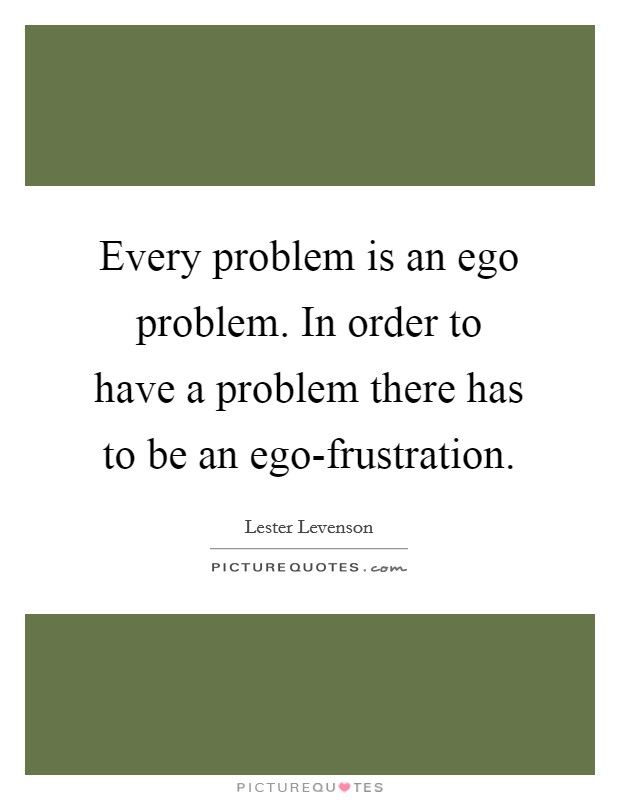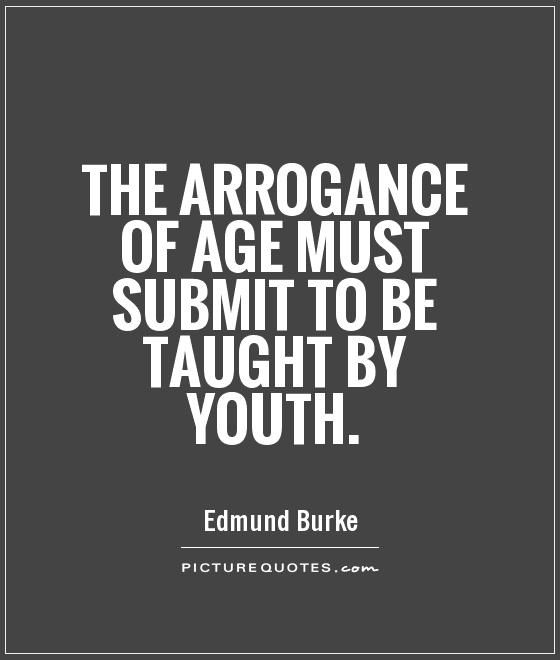Arrogance in a relationship
The Antidote to Arrogance
We often write about the virtues and qualities that promote healthy and mutually-fulfilling relationships, such as generosity, respect, commitment, and compassion, to name a few in the top ten. Cultivating these qualities through intentional practice will do a lot to enhance the quality of all of our relationships. Strengthening virtuous qualities alone however, is not sufficient to maximize ones capability to optimize the quality of our relationships. The other side of the equation has to do with identifying those aspects of our character that not only do not support this intention but actually serve to weaken it.
Of all of the tendencies that diminish the quality of our relationships, few, if any are as damaging as that of arrogance. Arrogant as defined by the American heritage dictionary comes from
arrogatewhich means “to appropriate for oneself, presumptuously; to claim without right and “to be overly convinced of ones own importance. One of the unfortunate consequences of arrogance is that people who are guilty of possessing this trait often have no awareness of it and when confronted by feedback that suggests that they may be grabbing more ground than they are actually entitled to, often become highly defensive and even combative, which ironically demonstrates that they probably are.
Not surprisingly, when arrogance shows up in a relationship it can be a conversation-stopper, since it is likely that there will be insufficient willingness for the arrogant party to loosen their grip on whatever it is that they are committed to being right about. Arrogance is often an expression of a desire to avoid being ridiculed, punished, or controlled by others by whom one feels threatened. Because the arrogant party is most likely in denial of their arrogance, they are unaware that they are fearful and believe that whatever they are attached to being right about is the capital T Truth, rather than simply their point a view.
Because these folks are so fearful of the imagined consequences of their being wrong, their attachment to being right is usually very strong. Consequently, trying to appeal to their sense of reason or logic by providing relevant information that challenges their position is unlikely to be successful.More often than not, those who are partnered with someone who has a predisposition towards arrogance experience a lot of frustration and even anger as a result of rarely feeling heard, accepted or understood. This frustration can over time deteriorate into feelings of resignation or worse, despair. If these feelings continue, the prospects for restoring well-being to the relationship are slim to none.
Trying to get a person who is closed to input that is inconsistent with their perspective to be more open-minded is, as many of us know from experience, a losing battle. At best, there is an impasse in the relationship. At worst, things deteriorate and there is a serious degradation of trust and goodwill. The alternative is not to try another strategy to get your partner to see things your way, since this will in all likelihood be responded to with more defensiveness or anger, but to respond with the very thing that your partner is withholding: openness, curiosity, and vulnerability.
The alternative is not to try another strategy to get your partner to see things your way, since this will in all likelihood be responded to with more defensiveness or anger, but to respond with the very thing that your partner is withholding: openness, curiosity, and vulnerability.
It is a commonly held belief that if you dont contest or disagree with another perspective that you are implicitly agreeing with it. This is however, not necessarily true. Not arguing or trying to invalidate anothers point of view with your own does not constitute agreement. When you respond to arrogance with a counter-position it almost always results in an inflammation of the tension and antagonism between the two parties. Rather than trying to invalidate or discredit another point of view or the person holding it, a response that can be more productive is to simply acknowledge the others perspective, even it is spoken as a fact rather than an opinion, and resisting the temptation to win the argument. A conversation can only deteriorate into an argument if both parties are trying to convert each other to their point of view.
A conversation can only deteriorate into an argument if both parties are trying to convert each other to their point of view.
Stating I understand that that is your point of view, and I appreciate your sharing it with me, can be a good starting place. Adding the question, Are you interested in hearing about how I see it? can convey your willingness to take no for an answer which will lower the level of tension and antagonism in the interaction. More often than not (although not always) , your partner will say yes. If they do, you will have the opportunity to express your perspective without judging or invalidating your partners view. Doing so will promote increased trust and respect which will begin to diminish the feelings of fear and threat that underlie the rigidity that characterizes arrogance. Getting to a point where we can at least agree to disagree is a significant step in the process of dealing with arrogance.
Aggressive strategies that are driven by the desire to defeat the other person and strategies that are designed to accommodate and tolerate arrogance or disrespect are both doomed to fail. Although the vulnerability that is present in a non-reactive response to arrogance can enhance the likelihood of greater mutual trust and understanding, this result is not always the outcome of all encounters with arrogance. When your partner says that he or she is not interested in hearing your point of view, you can respond by asking them to let you know under what conditions they might be, since it is important to you to feel that there is some degree of care and concern about your perspective. Its not about who is right but rather its about being heard, respected, and understood. When these conditions are met, a mutual understanding can usually be worked out.
Although the vulnerability that is present in a non-reactive response to arrogance can enhance the likelihood of greater mutual trust and understanding, this result is not always the outcome of all encounters with arrogance. When your partner says that he or she is not interested in hearing your point of view, you can respond by asking them to let you know under what conditions they might be, since it is important to you to feel that there is some degree of care and concern about your perspective. Its not about who is right but rather its about being heard, respected, and understood. When these conditions are met, a mutual understanding can usually be worked out.
In dealing with arrogance, as with so many of the other learning opportunities that relationships offer, Gandhis advice to be the change you want to see in the world or in this case, in your relationship, most definitely applies. The quality that we may most need to cultivate in ourselves if we are to influence anothers arrogance is its opposite; that is, humility. There is of course no guarantee that your partner will immediately thank you for enlightening them through your example and drop their defensiveness and open their heart to you. That may take another go-round or maybe two, or more. But if you make your best effort and do what you know is the right thing, youll have the comfort of knowing that you gave it your best shot and at the very least, you didnt become part of the problem. Plus, who among us couldnt use a bit more humility in our lives? So regardless of he outcome something positive will be gained, and who knows? Humility can sometimes be contagious.
There is of course no guarantee that your partner will immediately thank you for enlightening them through your example and drop their defensiveness and open their heart to you. That may take another go-round or maybe two, or more. But if you make your best effort and do what you know is the right thing, youll have the comfort of knowing that you gave it your best shot and at the very least, you didnt become part of the problem. Plus, who among us couldnt use a bit more humility in our lives? So regardless of he outcome something positive will be gained, and who knows? Humility can sometimes be contagious.
~~~~~~~~~~~~~~~~~~~~~~~~~~~~~~~~~~~~~~~~
Were giving away 3 e-books absolutely free of charge. To receive them just click here. Youll also receive our monthly newsletter.Be sure to follow us on Facebook and dont miss our Facebook Live presentations every Thursday at 12:30 pm PST.The Antidote to Arrogance
We often write about the virtues and qualities that promote healthy and mutually-fulfilling relationships, such as generosity, respect, commitment, and compassion, to name a few in the top ten. Cultivating these qualities through intentional practice will do a lot to enhance the quality of all of our relationships. Strengthening virtuous qualities alone however, is not sufficient to maximize ones capability to optimize the quality of our relationships. The other side of the equation has to do with identifying those aspects of our character that not only do not support this intention but actually serve to weaken it.
Cultivating these qualities through intentional practice will do a lot to enhance the quality of all of our relationships. Strengthening virtuous qualities alone however, is not sufficient to maximize ones capability to optimize the quality of our relationships. The other side of the equation has to do with identifying those aspects of our character that not only do not support this intention but actually serve to weaken it.
Of all of the tendencies that diminish the quality of our relationships, few, if any are as damaging as that of arrogance. Arrogant as defined by the American heritage dictionary comes fromarrogatewhich means “to appropriate for oneself, presumptuously; to claim without right and “to be overly convinced of ones own importance. One of the unfortunate consequences of arrogance is that people who are guilty of possessing this trait often have no awareness of it and when confronted by feedback that suggests that they may be grabbing more ground than they are actually entitled to, often become highly defensive and even combative, which ironically demonstrates that they probably are.
Not surprisingly, when arrogance shows up in a relationship it can be a conversation-stopper, since it is likely that there will be insufficient willingness for the arrogant party to loosen their grip on whatever it is that they are committed to being right about. Arrogance is often an expression of a desire to avoid being ridiculed, punished, or controlled by others by whom one feels threatened. Because the arrogant party is most likely in denial of their arrogance, they are unaware that they are fearful and believe that whatever they are attached to being right about is the capital T Truth, rather than simply their point a view.
Because these folks are so fearful of the imagined consequences of their being wrong, their attachment to being right is usually very strong. Consequently, trying to appeal to their sense of reason or logic by providing relevant information that challenges their position is unlikely to be successful.More often than not, those who are partnered with someone who has a predisposition towards arrogance experience a lot of frustration and even anger as a result of rarely feeling heard, accepted or understood. This frustration can over time deteriorate into feelings of resignation or worse, despair. If these feelings continue, the prospects for restoring well-being to the relationship are slim to none.
This frustration can over time deteriorate into feelings of resignation or worse, despair. If these feelings continue, the prospects for restoring well-being to the relationship are slim to none.
Trying to get a person who is closed to input that is inconsistent with their perspective to be more open-minded is, as many of us know from experience, a losing battle. At best, there is an impasse in the relationship. At worst, things deteriorate and there is a serious degradation of trust and goodwill. The alternative is not to try another strategy to get your partner to see things your way, since this will in all likelihood be responded to with more defensiveness or anger, but to respond with the very thing that your partner is withholding: openness, curiosity, and vulnerability.
It is a commonly held belief that if you dont contest or disagree with another perspective that you are implicitly agreeing with it. This is however, not necessarily true. Not arguing or trying to invalidate anothers point of view with your own does not constitute agreement. When you respond to arrogance with a counter-position it almost always results in an inflammation of the tension and antagonism between the two parties. Rather than trying to invalidate or discredit another point of view or the person holding it, a response that can be more productive is to simply acknowledge the others perspective, even it is spoken as a fact rather than an opinion, and resisting the temptation to win the argument. A conversation can only deteriorate into an argument if both parties are trying to convert each other to their point of view.
When you respond to arrogance with a counter-position it almost always results in an inflammation of the tension and antagonism between the two parties. Rather than trying to invalidate or discredit another point of view or the person holding it, a response that can be more productive is to simply acknowledge the others perspective, even it is spoken as a fact rather than an opinion, and resisting the temptation to win the argument. A conversation can only deteriorate into an argument if both parties are trying to convert each other to their point of view.
Stating I understand that that is your point of view, and I appreciate your sharing it with me, can be a good starting place. Adding the question, Are you interested in hearing about how I see it? can convey your willingness to take no for an answer which will lower the level of tension and antagonism in the interaction. More often than not (although not always) , your partner will say yes. If they do, you will have the opportunity to express your perspective without judging or invalidating your partners view. Doing so will promote increased trust and respect which will begin to diminish the feelings of fear and threat that underlie the rigidity that characterizes arrogance. Getting to a point where we can at least agree to disagree is a significant step in the process of dealing with arrogance.
Doing so will promote increased trust and respect which will begin to diminish the feelings of fear and threat that underlie the rigidity that characterizes arrogance. Getting to a point where we can at least agree to disagree is a significant step in the process of dealing with arrogance.
Aggressive strategies that are driven by the desire to defeat the other person and strategies that are designed to accommodate and tolerate arrogance or disrespect are both doomed to fail. Although the vulnerability that is present in a non-reactive response to arrogance can enhance the likelihood of greater mutual trust and understanding, this result is not always the outcome of all encounters with arrogance. When your partner says that he or she is not interested in hearing your point of view, you can respond by asking them to let you know under what conditions they might be, since it is important to you to feel that there is some degree of care and concern about your perspective. Its not about who is right but rather its about being heard, respected, and understood. When these conditions are met, a mutual understanding can usually be worked out.
When these conditions are met, a mutual understanding can usually be worked out.
In dealing with arrogance, as with so many of the other learning opportunities that relationships offer, Gandhis advice to be the change you want to see in the world or in this case, in your relationship, most definitely applies. The quality that we may most need to cultivate in ourselves if we are to influence anothers arrogance is its opposite; that is, humility. There is of course no guarantee that your partner will immediately thank you for enlightening them through your example and drop their defensiveness and open their heart to you. That may take another go-round or maybe two, or more. But if you make your best effort and do what you know is the right thing, youll have the comfort of knowing that you gave it your best shot and at the very least, you didnt become part of the problem. Plus, who among us couldnt use a bit more humility in our lives? So regardless of he outcome something positive will be gained, and who knows? Humility can sometimes be contagious.
~~~~~~~~~~~~~~~~~~~~~~~~~~~~~~~~~~~~~~~~
Were giving away 3 e-books absolutely free of charge. To receive them just click here. Youll also receive our monthly newsletter.Be sure to follow us on Facebook and dont miss our Facebook Live presentations every Thursday at 12:30 pm PST.What is arrogant behavior, how it is expressed, the reasons for such communication
Probably, each of us at some time in our lives has come across an arrogant, arrogant person who looks down on everyone. Communicating with such an individual is unpleasant, difficult, and an arrogant look directed at you prompts you to immediately stop the conversation.
From this article you will learn about such a negative personality trait as arrogance, we will tell you how an arrogant attitude manifests itself towards people and how to communicate with arrogant people.
What is arrogant behavior
Ushakov's explanatory dictionary gives such a definition of arrogance - this is a dismissive attitude towards others, confidence in one's superiority over them.
That is, an arrogant person is a person who puts himself above others, shows arrogance, arrogance, always strives to speak in a contemptuous tone, to behave proudly.
An arrogant person, from the point of view of psychology, is endowed with such personal negative qualities as indifference, demonstrative behavior, lack of respect, dominance (this includes the desire to make remarks, sneer and mock). Arrogance means disrespectful behavior, ignoring someone else's point of view, lack of compassion, contempt for others.
An arrogant person who considers himself better than others attaches excessive importance to his own successes, he cannot adequately perceive criticism, reckon with other people's opinions, and be compared with the success of someone else.
Arrogant people believe that everyone around them should admire, idolize, respect. But in reality, the situation is the opposite - it is difficult for them to understand why people turn away from them, avoid communication, break off all contacts, stop trusting.
Arrogance is manifested in an inadequate level of self-esteem - with any comparison of oneself with others, an arrogant person will stand out, putting himself higher and increasing his merits, even if, in fact, an arrogant person does not understand some things at all.
Example
There are many situations where people behave arrogantly. For example, a taxi driver may respond rudely and haughtily to a passenger's comment about driving carefully. An arrogant hairdresser can criticize the condition and beauty of the client's hair, give unsolicited advice (without taking into account the opinions of others). A neighbor may make an arrogant face at your request not to make noise.
The reasons for the arrogant attitude are the desire to assert oneself at the expense of others, to increase one's own significance in the eyes of others, and to use others for selfish purposes. Often this is a simple desire to compensate for their own insecurity, not farsightedness and lack of proper education.
Important! People with arrogant behavior are literally dependent on the opinions of others. Self-affirmation at the expense of others, the exaltation of one's own merits, the desire to receive attention and worship - this is the driving force of arrogance.
Causes of arrogance
Arrogant behavior, as a personality trait, is laid down from childhood - upbringing and environment play a significant role in the formation of character and personality.
Here are a few more reasons why people can become arrogant.
| No. p / p | Reasons for arrogant behavior |
| one. | Psychological trauma (bullying, bullying, loss, abuse) and features of psycho-emotional development |
| 2. | Inadequate level of self-esteem, distorted own perception, features of character and temperament |
| 3. | Excessive self-esteem due to real, not imaginary achievements |
| four. | The need to receive approval, praise, attention from others |
What causes arrogance and arrogance
To put it bluntly, arrogant people are annoying. With their defiant behavior, they destroy any normal social ties - it becomes unbearable to communicate, understanding and sympathy cannot be achieved from such an individual, the atmosphere becomes tense and you want to quickly end the conversation.
Of course, inappropriate behavior affects all areas of life - friendly, business and personal contacts are cut off, communication does not bring pleasure, the psychological state worsens, the mood deteriorates.
And damaged relationships, in turn, lead to emotional exhaustion, anxiety, irritability, crises and mental health problems.
Important! A woman, like a man with inadequate self-esteem, will not be able to build harmonious relationships and start a family, as well as communicate with relatives on an equal footing and with respect. As a rule, arrogant people do not understand their problem and do not analyze their behavior.
As a rule, arrogant people do not understand their problem and do not analyze their behavior.
Communication Rules
How to deal with arrogant people? You can’t erase relatives or friends from your life if the person is dear to you. Here are some tips that you can use to build a normal communication process:
- If your point of view is being imposed on you, calmly and politely tell the interlocutor that his opinion is not the only one and may not coincide with the opinions of other people.
- If arrogance "goes beyond" decency (and often arrogant personalities cannot adequately assess what was said), ask the interlocutor to be more polite, say that if he does not stop communicating in the same tone, you will be forced to end the conversation. If the tone of the interlocutor does not change, leave silently without warning, do not wait for the end of the dialogue, do not think that this is uncivilized, end the conversation immediately.
- If they try to interrupt you, you can point it out directly and continue the conversation in a calm manner
- Patience and respect are your allies when dealing with arrogant people, do not stoop to their level and maintain your own adequacy.
 Often people themselves cannot understand that they are behaving provocatively. Your soft and confident remark will help to correct the demeanor.
Often people themselves cannot understand that they are behaving provocatively. Your soft and confident remark will help to correct the demeanor.
Book an online consultation if you experience arrogance or conflict yourself. Our psychologists will help you establish communication with toxic people, build personal relationships or a career, learn to respect other people's opinions, but not allow violation of your own boundaries.
FAQ
Signs of an arrogant and arrogant person?
+
Does not notice the merits of other people, puts himself in the first place, does not share and does not approve of a different point of view (except his own), waits for approval and praise, does not forgive mistakes and strives to stand out against the background of other people's failures, cannot listen (without interrupting), presents unfounded claims, the merits of others are taken for granted, and exalt their own
Why are people arrogant? What drives them?
+
Psychologists tend to believe that the main motivation of arrogant people is the desire to receive approval, praise, not to lose their own reputation in the eyes of others. In order not to be considered a loser and often not demonstrate a low level of their intelligence, arrogant citizens try not to seek help from other people, even if this causes them some harm. In order not to demonstrate neediness and incompetence, it is better not to ask anyone about anything - often this is how insecure people argue.
In order not to be considered a loser and often not demonstrate a low level of their intelligence, arrogant citizens try not to seek help from other people, even if this causes them some harm. In order not to demonstrate neediness and incompetence, it is better not to ask anyone about anything - often this is how insecure people argue.
Are self-confidence and arrogance synonymous?
+
Sometimes people confuse these concepts. If a person is self-confident, then this does not mean that she is arrogant. Self-confidence is an adequate assessment of one's own skills and abilities. A self-confident person can admit his mistakes and accept someone else's opinion, unlike an arrogant individual. Arrogance is always negative, and self-confidence can be a positive quality.
Expert opinion
Arrogance is not encouraged by society, it is difficult to communicate with those who violate other people's borders, it is not desirable and unpleasant to talk with those who are trying to elevate themselves to the “pedestal of honor” at the expense of others. Poor upbringing and problems with self-esteem often become the causes of inappropriate behavior - arrogance. If you find such a negative trait in yourself or your friends, then the best way to get rid of it is to work with a psychologist.
Poor upbringing and problems with self-esteem often become the causes of inappropriate behavior - arrogance. If you find such a negative trait in yourself or your friends, then the best way to get rid of it is to work with a psychologist.
We publish only verified information
Article author
Monakhova Albina Petrovna clinical psychologist
Experience 17 years
Consultations 1439
Articles 273
Specialist in clinical psychology. Help in finding tools for self-realization, working out beliefs, fears and anxieties. Work with self-attitude, internal boundaries, understanding of interaction with society through conscious personal changes.
Help in finding tools for self-realization, working out beliefs, fears and anxieties. Work with self-attitude, internal boundaries, understanding of interaction with society through conscious personal changes.
- 2007 - 2008 MUS Children's polyclinic No. 4 - teacher psychologist
- 2008 - 2009Healthy Country LLC - Clinical Psychologist
- 2009 - 2021 Republican Narcological Dispensary - psychologist
- 2012 - 2013 Occupational medicine - psychologist
- 2013 - 2015 LLC Vozrozhdenie - psychologist
- 2019 to present Teledoctor24 LLC - psychologist
"I'm better than you": what is the use of arrogance?
Man among men
Arrogance looks unsympathetic from the outside (upturned nose, protruding lower lip, head thrown up - such a caricature of pride) and lonely inside.
An arrogant facial expression stops any desire to approach and make friends, and the experience of arrogance inside leads to Pechorin's proud loneliness. Being caught in arrogance is unpleasant, and in some situations, for example, among people striving for general equality and justice, even dangerous.
Being caught in arrogance is unpleasant, and in some situations, for example, among people striving for general equality and justice, even dangerous.
But if there is such a phenomenon in nature, if there is a word denoting it, then it is worth looking for the tasks that this experience serves. Perhaps this will help us to be more stable and free when meeting with the "Habsburgs" and "Napoleons" and to be more understanding of our own Napoleonic habits.
I will not consider the personal meaning of arrogance: each of us can easily justify why he is more beautiful than everyone else at one time or another. I will better consider the functions and tasks of arrogance.
Childhood: a conflict between two forces
I suggest starting from childhood, when a person grows rapidly, becomes stronger, stronger, more enduring, constantly learning new things, becoming smarter and more skillful. Mastering some actions happens easily and naturally, while other things require some effort and self-control, especially at the beginning.
Using a potty is more difficult than using a diaper, eating pasta with a fork requires more effort than using your hand, and reading a book can be pretty exhausting before you get any pleasure from it. And the upright posture itself requires the efforts of the whole body, the efforts of the will and spirit, so as not to get on all fours or at least not to slouch.
And a person finds himself at a point between those to whom all this comes easily and simply, who already owns the secrets of cultural life, on the one hand, and those who live well without this culture and without these efforts, unenlightened savages, on the other .
The child finds himself between adults who have already assimilated cultural patterns of behavior and identify with them, and younger children who have not yet mastered these patterns and can easily behave more directly.
Arrogance towards classmates allows one to reward oneself for efforts
Two attractive figures appear in the child's field of vision: a skilled, ideal senior, the bearer of a cultural model of behavior, and a free junior, not burdened with efforts and restrictions. And now the child finds himself in a situation of conflict between two forces: the desire to perform an action in a simple and natural way (for example, burying himself in the pulp of a watermelon with his head, immediately report his emotions with loud joyful cries, drive away a competitor from the prey with his elbow and heel ...) and the desire to mobilize the will and act in accordance with the cultural pattern.
And now the child finds himself in a situation of conflict between two forces: the desire to perform an action in a simple and natural way (for example, burying himself in the pulp of a watermelon with his head, immediately report his emotions with loud joyful cries, drive away a competitor from the prey with his elbow and heel ...) and the desire to mobilize the will and act in accordance with the cultural pattern.
As long as this cultural mode of action is not assimilated by the child, as long as he is only learning, he needs many special voluntary efforts to maintain the ideal model of behavior. It is necessary to use some way to separate, to delimit oneself from the seductive mode of behavior with which the child has recently identified himself.
And here the primary arrogance of the elder in front of the younger comes to the rescue: “don't come near me” (or “let him go away”, “little ones can't come here”, “I'll be the first”). The task of the child is to organize a spatial and temporal distance, not to be at the same time next to someone who demonstrates a more “primitive”, “outdated” way of behavior.
The closer this mode of action is to the child himself, the more violently the younger one is rejected. The adult argument, “You just did the same yourself recently,” makes the child feel ashamed and furious, as these examples undermine the foundations of his new identity based on new cultural patterns of behavior.
And starting from senior preschool and primary school age, that is, from the time when the child begins to actively and quite consciously participate in learning himself, when he tries to appreciate his achievements and be proud of them, arrogance towards classmates allows you to reward yourself for your efforts , spent on writing smoothly, sitting quietly, when in fact the body wants to run or lie on a desk, and thoughts are also somewhere far away.
Arrogance turns out to be an effective tool of self-support when the child does not have enough ways to regulate the load, recognition, consolation, admiration: everything that he needs to continue working on self-cultivation.
Adolescence: mastering adult roles
Even in adolescence, we can observe manifestations of arrogance associated with mastering adult roles. Someone earns money, someone can fill up everyone with one hand, someone is the most beautiful in the world. At this point, it is again impossible to afford to be with the younger ones, although the temptation to merge with a simpler and safer way of being is great.
At this point of growth, it is impossible to get the usual support from the younger ones through merging, dissolving in the native group, because for this you need to recognize yourself as the same as they are - children, direct, to some extent asexual, dependent. And in order to receive support from the younger ones in the form of admiration, respect, obedience, you need to separate from them and establish yourself in a new status.
A full-fledged recognition from elders is also unattainable, because you still do not reach their level, you are not yet quite an adult, not quite a man, not quite a woman, not quite independent. At the same time, the mastered way of behavior (sexual, professional, social and mental) is extremely important for one's own identity ("I am worthy of respect"), therefore, there is a need for such a resource as self-support.
At the same time, the mastered way of behavior (sexual, professional, social and mental) is extremely important for one's own identity ("I am worthy of respect"), therefore, there is a need for such a resource as self-support.
Arrogance as a way to protect one's values
In adulthood, there are also situations in which people protect their self-esteem by distancing themselves from other people, asserting their values as significant and important.
For example, being in a different cultural space, when the rules and traditions of the majority differ from the norms and traditions of one person, family or group, and boundaries and distance are necessary to maintain these norms.
Thus, in some situations, the way people wash their hands before eating, say a prayer or say "thank you", read books or wear clean clothes could be perceived as a manifestation of arrogance and swagger. The strange attachment to the cherry orchard is incomprehensible, illogical, but without this the life of some strange people loses its meaning.















